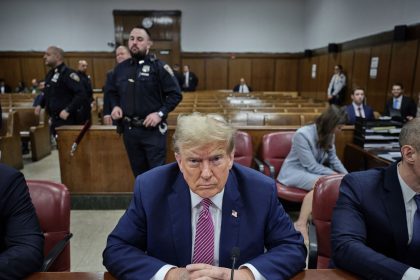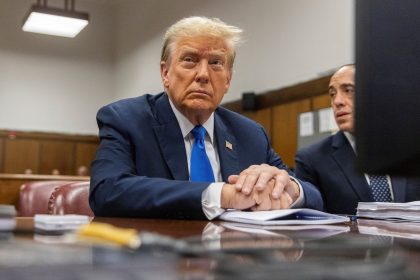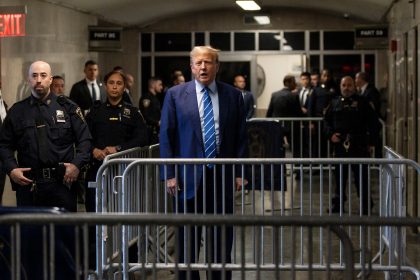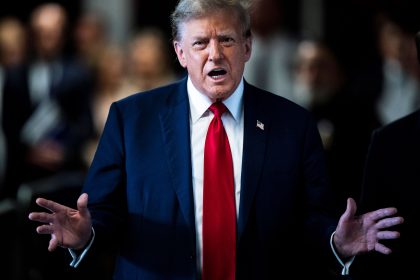Supreme Court Weighs Ending Non-Unanimous Jury Verdicts in Criminal Cases

WASHINGTON – The Supreme Court this week took up a question it has avoided in recent years: Whether the Sixth Amendment of the Constitution requires unanimous verdicts in criminal cases in both federal and state courts.
In practice, the Bill of Rights applies to both the federal government and the states, but in 1972 the Supreme Court itself carved out an exception in the case Apodaca v. Oregon.
In Apodaca, the justices held 5-4 that, as a matter of federal constitutional law, the Sixth Amendment requires unanimous jury verdicts.
But when it came to the question of whether the Due Process clause of the Fourteenth Amendment requires unanimous jury verdicts in state courts, the five justices in the majority, led by Justice Lewis Powell, concluded it does not.
As the justices said at the time, “We perceive no difference between juries required to act unanimously and those permitted to convict or acquit by votes of 10 to two or 11 to one.”
Making Apodaca even more anomalous, only two states have employed the option of non-unanimous jury verdicts, Oregon and Louisiana — and Louisiana changed its law earlier this year and will now require unanimous jury verdicts for any crimes committed after Jan. 1, 2019.
But the new law in Louisiana is not retroactive, and the figure at the center of the case before the court, Evangelisto Ramos was convicted of committing a murder in Louisiana in 2014.
The court’s holding in this case could be significant. If the court decides the problem rests not with what it calls the “asymmetry” between the federal and state law requirements, but rather with the assumption that the Sixth Amendment requires unanimous verdicts at all, it could upend a basic assumption about jury trials for lawyers, judges and lawmakers.
It would mean that for the first time, requiring unanimous verdicts in criminal cases in federal court would be a choice, not a constitutional requirement. And states would no longer have to worry that their requirements varied from the Sixth Amendment.
Ramos was charged with murder after the body of a woman he knew was found stuffed in the garbage can of a church directly across the street from his home. Ramos’ DNA was found on the victim and on the handles of the trash can.
After a two-day trial, the court accepted a 10-2 verdict from the jury convicting Ramos of murder. He argues that the constitutional right to trial includes the right to a unanimous verdict.
During oral arguments on Monday, Ramos’s lawyer, Stanford law professor Jeffrey Fisher, said because of Justice Powell’s position in Apodaca, “when the court says something is a fundamental rule under our way of doing criminal justice, the states have to follow that rule the same way as the federal government.”
He also urged the court to think of the importance of dissenting voices on juries.
“If you have one or two members of a minority on a jury, it could be a racial minority, it could be a political minority, it could be a religious minority. Are we really prepared to say that those one or two votes can be utterly canceled out?” Fisher said.
Louisiana Solicitor General Elizabeth Murrill disagreed, arguing that “nothing in the text, structure, or history of the Sixth Amendment requires unanimous jury verdicts.”
She said the state had relied on the Supreme Court’s expressed approval of non-unanimous verdicts for more than 50 years, and 32,000 people are in prison under that system.
She later conceded she didn’t know how many had been convicted by less than unanimous juries and might seek to have their convictions voided if Ramos were to prevail.
Several organizations filed amicus briefs in the case, including the American Bar Association, the ACLU, and the National Association of Criminal Defense Lawyers.
Most said unanimity advances the established purposes of the jury trial right, such as checking prosecutorial excess, promoting group deliberation and accuracy, ensuring representative community judgments, and maintaining public confidence in criminal verdicts.
Justice Brett Kavanaugh asked Murrill for her best arguments for treating state juries differently from federal ones should the court reject her Sixth Amendment argument.
“Justice Kavanaugh,” she responded, “they are concededly not very good.”
























